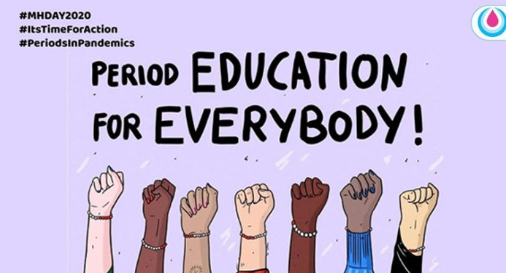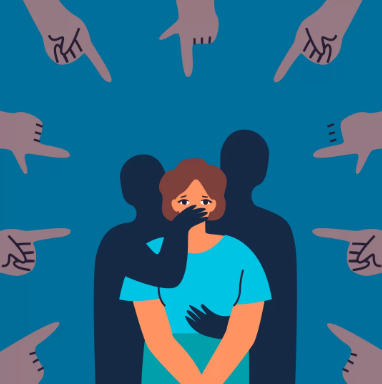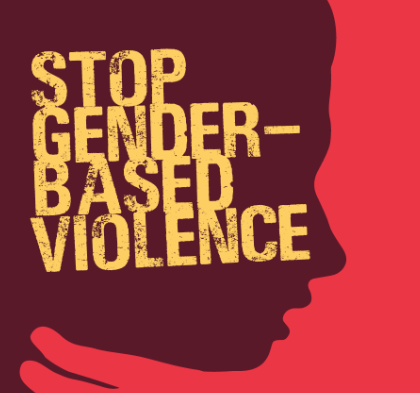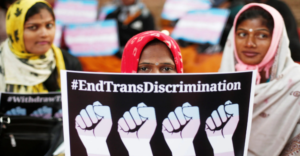Gender-based violence (GBV) encompasses various forms of power dynamics, where one individual, typically a girl or woman, is subjected to the strength and dominance of another. This oppressive behaviour stems from the perception of the girl as powerless, inferior, and disadvantaged. The menstrual cycle, a significant aspect of a girl’s journey towards motherhood and womanhood, can create a sense of physical vulnerability and impose social limitations on her.
Inadequate menstrual health practices, such as using unsuitable materials during menstruation, can lead to severe health consequences, including anaemia, urinary tract infections, and financial burdens, further exacerbating vulnerability to Gender-Based Violence (GBV).
This impactful blog delves into the unsettling intersection of gender-based violence and menstrual health, where women’s menstrual well-being is manipulated and disrupted by violent actions that highlight their dependence on menstrual products. It sheds light on two crucial subjects: the compelling link between gender-based violence and menstrual health, and the inspiring initiatives undertaken by social activists to combat GBV while promoting hygiene and menstrual health maintenance.
The Causal Link Between Menstrual Health And Gender-Based Violence.
In gender-based violence generally, the victim or survivor is a girl if she asked menstrual products and if the employed man doesn’t have enough money except for feeding his family. Not only this, employed or unemployed men have a great number of indirect reasons and circumstances to get violent, rude and give appreciation to gender-based violence (GBV). Poor menstrual health and harmful traditional practices could heighten the risk of women getting sexual assault, raped, exploited and harassed by male peers. Some conditions which give birth to gender-based violence or coercion are
Unemployed Poverty Pose
A man (partner or reluctance) is mostly an employed person with all duties to feed and fulfil the need of his family, but if the dominating person is self-unemployed or financially not good then buying sanitary products is a war and violence (beaten, and intimate) and this deliberately deprive women or survivor of menstrual products. Also, an unemployed woman needs to be dependent on a man who could demand anything in return for menstrual products, making them helpless and victim to GBV.
Washing Facility In General And School
If in public areas washing and toilet facilities is unavailable or inadequate then it becomes difficult for a woman to manage or tackle her menstrual and fills them with fear of exposure, shame, and embarrassment. In case of leaking, it becomes challenging to withhold and cope with bullying by abusers. This is quite an obvious reason for women being victims of violence, abuse, and ridicule within house walls which hurts the dignity of a woman.
Misconceptions And Some Restrictions: GBV And Menstrual Health
Perpetuated by misconceptions and misinformation, harmful practices stemming from gender-based violence (GBV) restrict women and teenage girls during menstruation, barring them from engaging in physical activities, household chores, religious practices, and even attending school. What was once a caring tradition has transformed into a source of shame, stigma, and impurity, leading to conflict when these restrictions are challenged.
Tragically, practices like Female Genital Mutilation/Cutting (FGM/C) inflict severe injuries on women, further exacerbating the cycle of violence. These oppressive restrictions often push women to consider transactional sex as a means of escaping such limitations.
Gender-Based Violence: Early Marriage
Anyhow a man accepts and is ready to cope with the expense of his woman for a man of the child but getting to know that he has a girl child (in a very low voice) upset him. Several studies and respondents have confirmed that as a girl gets mature or an adolescent girl and her menstrual cycle starts, her father decided to give the girl (the burden to pay for physical and menstrual health) instead to educate and giving her a chance for upliftment with illegal dowry within no time or marry his girl.
Menstrual Health: Pandemic And Natural Disaster
During the pandemic (covid 19) and natural disaster, basic products including menstrual products are so expensive and have a shortage which makes a man confirmed within four walls get violent and hands up to fulfil his duty and this lead to violence (GBV) with his loved ones. It has been often reported to confirm that pandemics and natural disasters or any natural crisis left so many people with nothing and at this time gender-based violence was prevalent to buy sanitary facilities.
Advocacy Initiatives And Activist Actions
Considering or acknowledging all these wild actions and self-experienced by many activists, transmit, non-binary individuals, volunteers, influencers and advocates come together to form a coalition and stand out in light or intervene to make others aware of all gender-based violence (GBV) and make strategies to promote healthy menstrual and innovation in a different region of the world. According to reports
- It has been doubted that only 2 out of 5 women have access to proper and safe sanitary to maintain menstrual health and hygiene.
- Nearly 30 per cent of women out of total have to suffer gender-based violence because of their menstrual periods.
FGM/C surgery could cause painful and irregular periods in case of obstruction of the vaginal opening and disturb their menstrual health.

These coalitions set up several agencies, NGOs, time-to-time campaigns and many other programs to protect vulnerable girls from abusers, GBV, wipe out misconceptions, tell the actual meaning of the menstrual cycle, structure adjustments for sustainable menstrual health (about menstrual products, and the way to use), provide satisfactory menstrual products and toilets, spreading menstrual awareness and empowering them with knowledge and many other so that no men could take advantage and lured them in returns of sanitary pads. They help women to get out of less stigmatizing attitudes, and suffering, enhance stability, feel comfortable, and be aware of traps.
-ASHU RANI
Must read: ETHICS IN THE COSMETICS INDUSTRY







